第97章 CHAPTER XXXVIII(3)
'I wonder what you would have been,' said I, 'if we'd stuck to the collects?'
'I don't think I should have had a hand in this little job,' he answered, looking up with pride at the mighty tower, as though he had a creative share in its construction.
All this while I was working hard at my own education, and trying to make up for the years I had wasted (so I thought of them), by knocking about the world. I spent laborious days and nights in reading, dabbling in geology, chemistry, physiology, metaphysics, and what not. On the score of dogmatic religion I was as restless as ever. I had an insatiable thirst for knowledge; but was without guidance. I wanted to learn everything; and, not knowing in what direction to concentrate my efforts, learnt next to nothing.
All knowledge seemed to me equally important, for all bore alike upon the great problems of belief and of existence.
But what to pursue, what to relinquish, appeared to me an unanswerable riddle. Difficult as this puzzle was, I did not know then that a long life's experience would hardly make it simpler. The man who has to earn his bread must fain resolve to adapt his studies to that end. His choice not often rests with him. But the unfortunate being cursed in youth with the means of idleness, yet without genius, without talents even, is terribly handicapped and perplexed.
And now, with life behind me, how should I advise another in such a plight? When a young lady, thus embarrassed, wrote to Carlyle for counsel, he sympathetically bade her 'put her drawers in order.'
Here is the truth to be faced at the outset: 'Man has but the choice to go a little way in many paths, or a great way in only one.' 'Tis thus John Mill puts it. Which will he, which should he, choose? Both courses lead alike to incompleteness. The universal man is no specialist, and has to generalise without his details. The specialist sees only through his microscope, and knows about as much of cosmology as does his microbe. Goethe, the most comprehensive of Seers, must needs expose his incompleteness by futile attempts to disprove Newton's theory of colour. Newton must needs expose his, by a still more lamentable attempt to prove the Apocalypse as true as his own discovery of the laws of gravitation. All science nowadays is necessarily confined to experts. Without illustrating the fact by invidious hints, I invite anyone to consider the intellectual cost to the world which such limitation entails; nor is the loss merely negative; the specialist is unfortunately too often a bigot, when beyond his contracted sphere.
This, you will say, is arguing in a circle. The universal must be given up for the detail, the detail for the universal; we leave off where we began. Yes, that is the dilemma. Still, the gain to science through a devotion of a whole life to a mere group of facts, in a single branch of a single science, may be an incalculable acquisition to human knowledge, to the intellectual capital of the race - a gain that sometimes far outweighs the loss. Even if we narrow the question to the destiny of the individual, the sacrifice of each one for the good of the whole is doubtless the highest aim the one can have.
But this conclusion scarcely helps us; for remember, the option is not given to all. Genius, or talent, or special aptitude, is a necessary equipment for such an undertaking.
Great discoverers must be great observers, dexterous manipulators, ingenious contrivers, and patient thinkers.
The difficulty we started with was, what you and I, my friend, who perhaps have to row in the same boat, and perhaps 'with the same sculls,' without any of these provisions, what we should do? What point of the compass should we steer for?
'Whatever thy hand findeth to do, do it with thy might.'
Truly there could be no better advice. But the 'finding' is the puzzle; and like the search for truth it must, I fear, be left to each one's power to do it. And then - and then the countless thousands who have the leisure without the means - who have hands at least, and yet no work to put them to - what is to be done for these? Not in your time or mine, dear friend, will that question be answered. For this, I fear we must wait till by the 'universal law of adaptation' we reach 'the ultimate development of the ideal man.' 'Colossal optimism,' exclaims the critic.